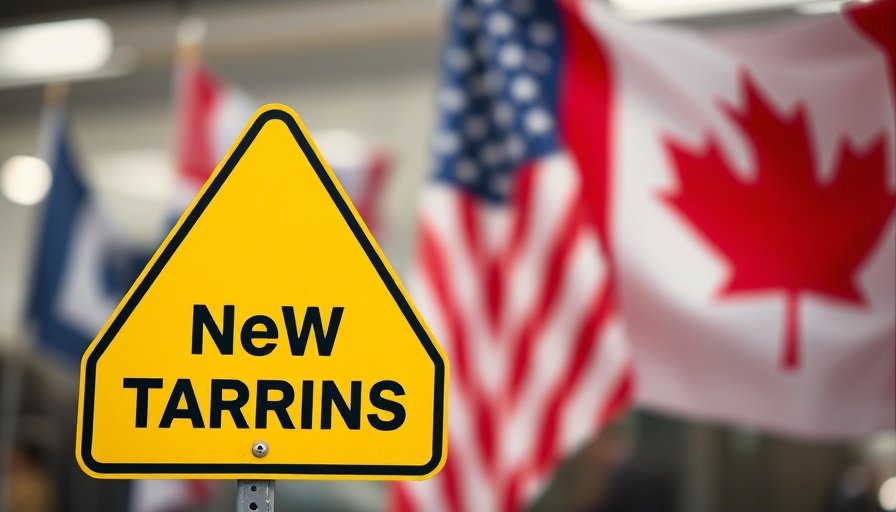
Will Tariffs Really Stimulate the U.S. Auto Industry?
In a bold assertion, President Donald Trump recently stated, "We’re going to have growth in the auto industry like nobody’s ever seen." Announcing a 25% tariff on imports from Mexico and Canada, he argues this move will invigorate American automotive production, purportedly positioning it for an unprecedented boom. However, economic analysis suggests there’s a storm brewing that could contradict these optimistic forecasts.
The Economic Chain Reaction of the Tariffs
The newly imposed tariffs come into play amid ongoing negotiation tensions with key U.S. trading partners. According to Nikkei Asia, such measures could raise costs for U.S. automakers by a staggering $61 billion annually. With automakers like Mazda importing about 30% of their vehicles from Mexico, these rising costs could lead to a significant spike in vehicle prices, potentially decreasing consumer demand by up to 12%. As President Trump himself admits, there may be short-term pain associated with these tariffs; however, many experts fear this could evolve into a protracted economic pain for the industry.
Will American Consumers Bear the Cost?
As businesses often pass tariffs down to the consumer, it’s likely that the very customers Trump aims to help may face increased prices. Estimates predict that the cost of some vehicle models could swell by as much as 25%, as outlined by the Alliance for Automotive Innovation. In effect, the tariffs may stifle purchasing power and complicate financing options for potential buyers. Dealerships could see diminishing returns and greater challenges in selling vehicles.
The Big Picture: Tariffs and Job Impact
While some argue that tariffs might encourage local manufacturing, the reality is more complex. S&P Global Mobility predicts a potential cut of one-third in North American auto production, translating to approximately 20,000 vehicles lost per day. Consequently, if manufacturers reduce production rates, layoffs could become an unsettling reality. This unpredictable atmosphere burdens dealerships and their employees, dragging morale and profitability into the fray.
Long-Term Dire Consequences?
The long-term consequences of these tariffs could lead to an unpredictable cycle of economic stress. The complexities of the global supply chain mean that even an assembly plant that operates within the U.S. might rely on parts manufactured overseas. Such dependencies could mean longer wait times, broken supply chains, and ultimately lost sales. Dealership principals and GMs would be wise to prepare for an environment that might restrict vehicle availability.
A Call for Preparedness: Strategizing for Change
For dealership principals and GMs, the message is clear: preparation is paramount. As the industry weathers potential upheaval, dealers must be proactive in assessing their operations and what that means for their financing solutions. Understanding how to calculate auto loan interest, or utilizing tools like a used auto financing calculator, may be essential skills during these turbulent times.
Furthermore, searching for the best used car financing rates may appeal to budget-conscious consumers impacted by rising new car prices. Addressing the finance rate on used cars proactively can help mitigate impacts from the fluctuations driven by these tariffs. Knowledge about current used car financing interest rates can empower dealers to offer competitive rates that attract customers.
In conclusion, while Trump's assertion about the booming auto industry is optimistic, the robustness of such claims stands on shaky ground. Tariffs may ultimately lead to higher costs, reduced production, and increased consumer prices. Recognizing these underlying currents will be crucial as we adapt to the evolving automotive landscape.
 Add Row
Add Row  Add
Add 




Write A Comment